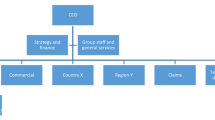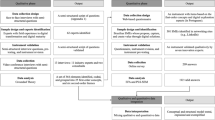Abstract
Recently, the evaluation of knowledge management has become increasingly significant. Nevertheless, few relevant studies explicitly distinguished knowledge management performance from knowledge management effectiveness. This paper covers both sides and introduces a new knowledge management measurement index. It establishes a comprehensive evaluation model by measuring three stages of knowledge management behavior: environmental analysis, knowledge management activity planning, and knowledge management implementation decision making. Data were collected through questionnaires from 100 small and medium sized enterprises in China. The statistical results show that the three stages positively and significantly contribute to the index. The environmental analysis influences most, with the knowledge management activity planning less and the knowledge management implementation decision making least. Finally, it proposes some useful suggestions for enterprises to assess, to predict and to guide their knowledge management practice.


Similar content being viewed by others
References
Aggestam L (2006) Learning organization or knowledge management—which came first, the chicken or the egg? Inf Technol Control 35(3A):295–302
Alavi M, Leidner DE (2001) Review: knowledge management and knowledge management systems—conceptual foundations and research issues. MIS Q 25(1):107–136
Allee V (1997) 12 Principles of knowledge management. Train Dev 51(11):71–74
American Productivity and Quality Center (1995) Knowledge management consortium benchmarking study: final report. American Productivity and Quality Center, Houston
Arthur Andersen Business Consulting (1995) Zukai knowledge management. Tokyo Keizar Inc., Japan
Beckett R, Murray P (2000) Learning by auditing: a knowledge creating approach. TQM Mag 12(2):125–136
Campbell A, Luchs KS (1997) Core competency-based strategy. International Thomson Business Press, London
Carrillo JE, Gaimon C (2004) Managing knowledge-based resource capabilities under uncertainty. Manage Sci 50(11):1504–1518
Chen MY, Chen AP (2005) Knowledge management performance evaluation: a decade review from 1995 to 2004. J Inf Sci 32(1):15–36
Chen MY, Huang MJ, Cheng YC (2009) Measuring knowledge management performance using a competitive perspective: an empirical study. Expert Syst Appl 36(2009):8449–8459
Choi B, Lee H (2003) An empirical investigation of KM styles and their effect on corporate performance. Inf Manage 40(5):403–417
Choo CW (1996) The knowing organization: how organizations use information to construct meaning, create knowledge and make decisions. Int J Inf Manage 16(5):329–340
Dervin B (1983) An overview of sense-making research: concepts, methods. The annual meeting of the International Communication Association. Dallas, TX
Fliaster A (2004) Cross-hierarchical interconnectivity: forms, mechanisms and transformation of leadership culture. Knowl Manage Res Pract 2(1):48–57
Goold M (2005) Making peer groups effective: lessons from BP’s experiences. Long Range Plan 38(5):429–443
Hair JF, Anderson RE, Tatham RL, Black WC (1998) Multivariate data analysis, 5th edn. Prentice-Hall, Englewood Cliffs, NJ
Hutcheson GD, Sofroniou N (1999) Introductory statistics using generalise linear models. The multiple social scientist. Sage Publications, Beverley Hills, London
Kalling T (2003) Knowledge management and the occasional links with performance. J Knowl Manage 7(3):67–81
Krogh G, Nonaka I, Aben M (2001) Making the most of your company’s knowledge: a strategic framework. Long Range Plan 34(4):421–439
Lee KC, Lee S, Kang IW (2005) KMPI: measuring knowledge management performance. Inf Manage 42(3):469–482
Levin DZ, Cross R (2004) The strength of weak ties you can trust: the mediating role of trust in effective knowledge transfer. Manage Sci 50(11):1477–1490
Lin C, Tseng SM (2005) Bridging the Implementation gaps in the knowledge management system for enhancing corporate performance. Expert Syst Appl 29(1):163–173
Liu Y, Othman A, Abdalla A, Wang J (2011) A novel sensemaking model of effective knowledge management within SMEs. Afr J Bus Manage 5(11):4423–4431
Moorman C (1995) Organizational market information processes: cultural antecedents and new product outcomes. J Mark Res 32(3):318–335
Ndlela LT, Toit ASA (2001) Establishing a knowledge management programme for competitive advantage in an enterprise. Int J Inf Manage 21(2):151–165
Newman B, Conrad KW (1999) The knowledge management theory papers: a framework for characterizing knowledge management methods, practices, and technologies, in support of the introduction to knowledge management, George Washington University Course EMGT 298.T1
Pfeffer J, Sutton R (1999) The knowing–doing gap. Harvard Business School Press, Boston
Prahalad CK, Hamel G (1990) The core competence of the corporation. Harv Bus Rev 1990:79–91
Ribiere VM, Sitar AS (2003) Critical role of leadership in nurturing a knowledge-supporting culture. Knowl Manage Res Pract 1(1):39–48
Ruggles R (1998) The state of the notion: knowledge management in practice. Calif Manage Rev 40(3):80–89
Iyer GS, Ravindran S (2009) Usefulness, incentives and knowledge management. J Knowl Manage 13(6):410–430
Spender JC, Grant RM (1996) Knowledge and the firm: overview. Strategy Manage J 17:5–9
Sproles N (2002) Formulating measures of effectiveness. Syst Eng 5(4):253–263
Stoner JAF, Freeman ER, Gilbert D (1995) Management. Prentice-Hall, Englewood Cliffs, NJ. ISBN 13: 9780131087477
Teece DJ (2000) Strategies for managing knowledge assets: the role of firm structure and industrial context. Long Range Plan 33(1):35–54
Tiwana A (2001) The knowledge management toolkit: practical techniques for building knowledge management system. Prentice-Hall, Englewood Cliffs, NJ
Tseng SM (2008) Knowledge management system performance measure index. Expert Syst Appl 34(2008):734–745
Wakefield RL (2005) Identifying knowledge agents in a KM strategy: the use of the structural influence index. Inf Manage 42(7):935–945
Wang TC, Chang TH (2007) Forecasting the probability of successful knowledge management by consistent fuzzy preference relations. Expert Syst Appl 32(2007):801–813
Yuan-Feng W (2009) An effectiveness measurement model for knowledge management. Knowl Based Syst 22(2009):363–367
Yim NH, Kim SH, Kim HW, Kwahkc KY (2004) Knowledge based decision making on higher level strategic concerns: system dynamics approach. Expert Syst Appl 27(1):143–158
Author information
Authors and Affiliations
Corresponding author
Rights and permissions
About this article
Cite this article
Liu, Y., Abdalla, A.N. Evaluating the managerial behavior of managing knowledge in Chinese SMEs. Inf Technol Manag 14, 159–165 (2013). https://doi.org/10.1007/s10799-013-0157-x
Published:
Issue Date:
DOI: https://doi.org/10.1007/s10799-013-0157-x




